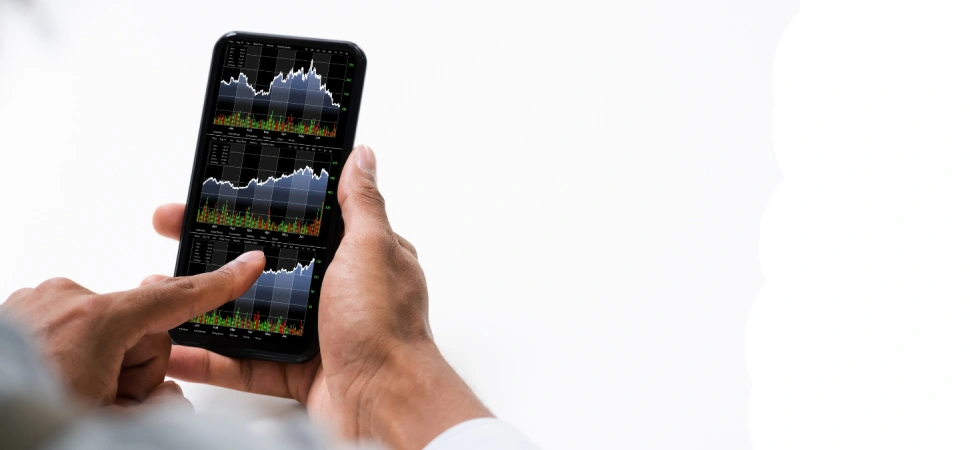11.07.2024
Евгений Лебедев
323

Futures trading offers many benefits and opportunities that can expand your investment potential. In this article, you will learn about the key concepts of futures trading and gain the knowledge you need to make informed and strategic investment decisions. Discover the benefits and mechanics of this advanced form of trading, important for any serious investor.
What are futures?
To fully understand futures trading, it is important to know the basic definition of futures contracts and how they work. Futures contracts are standardised agreements between two parties to buy or sell an underlying asset at a specific date in the future and at a price agreed upon today. This agreement gives the buyer and seller clear obligations and rights to the asset.
Imagine you are interested in the commodities market. By trading commodity futures, you are trading contracts that provide for the delivery of a commodity such as oil, gold or wheat at a specific date in the future. This allows you to speculate on the future price of these assets and protect yourself from unfavourable fluctuations in their value. In addition to commodities, futures are also traded on other assets such as stock indices and currencies. For example, you can participate in index futures such as the S&P 500, which represents a basket of stocks of leading American companies, or currency futures, which allow you to speculate on the exchange rates between different currencies.
Why trade futures?
One of the main advantages of trading futures is the increased leverage, which allows you to trade a portion of the total value of the contract. This means you can control a larger position with less initial capital. This approach increases both potential profits and losses, so it's important to manage risk properly.
Futures markets are also highly liquid. The presence of numerous buyers and sellers ready to deal at any time facilitates quick execution of orders and reduces the risk of slippage, i.e. the difference between the expected and actual price when the order is executed. In addition, futures provide access to a wide range of underlying assets, including commodities, stock indices, currencies and more. This allows investors to diversify their portfolios and reduce risk by spreading investments across different asset classes.
.webp)
Major futures markets
By exploring the major futures markets, you'll find various options that can fit your investment goals. For example, commodity markets include commodities such as oil, gold, silver, wheat and coffee. Commodity futures allow you to speculate on the future prices of these key resources in the global economy. Stock indices, such as the S&P 500, NASDAQ-100 and Dow Jones Industrial Average, allow you to trade the overall performance of a group of leading stocks in a particular market. This gives investors the opportunity to bet on the overall performance of the stock market rather than individual stocks.
Interest rate futures are based on interest rates on government bonds or specific financial instruments. These futures are used by investors to manage their exposure to interest rate fluctuations, which is particularly important in a changing economic environment. Examples of products traded in each market include:
- Gold (GC), crude oil (CL) and corn (C) futures in the commodities market;
- E-mini S&P 500 (ES), NASDAQ-100 (NQ) and Mini Dow Jones (YM) in the stock index market;
- US Treasury futures (ZT, ZN, ZB) in the interest rate market.
How does futures trading work?
Firstly, futures are traded on standardised contracts that specify the contract size, underlying asset, expiry date and other important terms. Each futures contract has a specific expiry date, after which the contract expires. Investors can choose between different expiration months, which provides flexibility to their strategies.
Before the contract expires, investors can close out their current position and open a new one on a future contract with a later expiry date. This process is called rollover and is critical to maintaining continuous market exposure. Futures trading requires initial margin, which is a good faith deposit to cover potential losses. Margin requirements can vary depending on the contract and market volatility. In addition to initial margin, investors must meet maintenance requirements to ensure that there are sufficient funds in the account to cover potential losses.
Key concepts in futures trading
In order to successfully trade futures, it is crucial to understand a few key concepts that underlie this trade. The underlying asset is the commodity or financial instrument on which the futures contract is based. It can be a commodity (such as gold or oil), a stock index (such as the S&P 500), a currency (such as the US dollar), and so on. Futures contracts are standardised in terms of size, quality, expiry dates and settlement methods. This makes trading much easier and ensures transparency in the markets. The contract price is the agreed price at which the buyer and seller agree to exchange the underlying asset at the maturity date of the contract.
The margin is the initial deposit required to open a position in a futures contract. It acts as a guarantee to cover potential losses and varies depending on market volatility and broker policy. The expiration Date is the specific date on which the futures contract expires. Investors must close out their positions before this date or move them to a new contract to avoid physical delivery of the underlying asset. Futures trading provides opportunities for both significant gains and losses due to its leveraged nature. It is essential to manage risk with the right risk management strategies and market analysis.
Conclusion
Futures trading opens up many opportunities for investors by offering tools for risk management and portfolio diversification. With the right approach to risk management and strategic analysis, futures trading can be a powerful tool for achieving financial goals. Whether you are a novice trader or a seasoned investor, futures offer flexibility and the potential for significant profits. Use the knowledge gained from this article to begin your journey into the world of futures trading with confidence and preparation.
